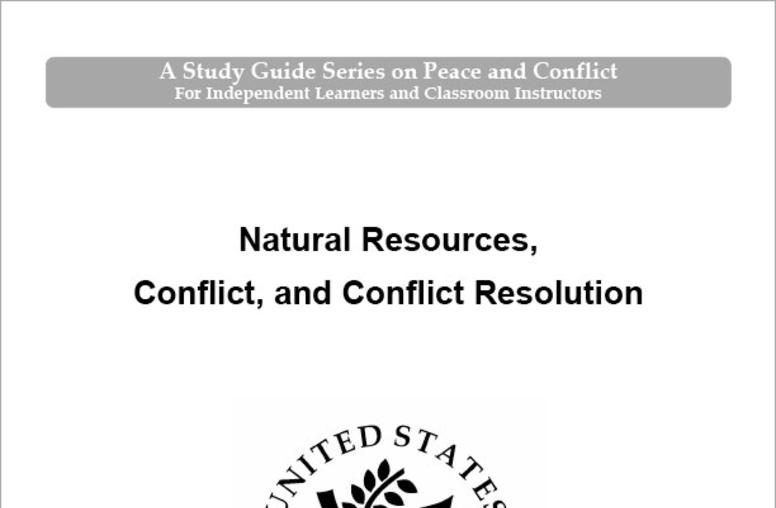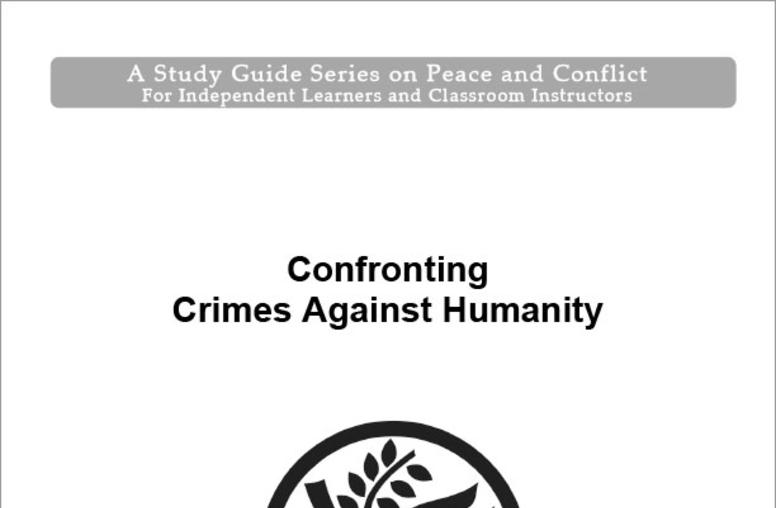Publications
Articles, publications, books, tools and multimedia features from the U.S. Institute of Peace provide the latest news, analysis, research findings, practitioner guides and reports, all related to the conflict zones and issues that are at the center of the Institute’s work to prevent and reduce violent conflict.
Task Force on the United Nations
USIP was directed by Congress in December 2004 to create a Task Force on the United Nations. The task force assessed the extent to which the United Nations is fulfilling the purposes stated in its Charter and recommended an actionable agenda for the United States on the UN. While not an official U.S. government effort, the Task Force was obligated to provide its report to Congress.
Lessons Learned
USIP's Lessons Learned program captures the experiences of US military and civilian officials returning from work in Sudan, Iraq, and Afghanistan.
Media as Global Diplomat
On February 3, 2009, USIP's Center of Innovation for Media, Conflict and Peacebuilding joined the Independent Television Service (ITVS) to convene Media as Global Diplomat, a day-long conference that brought together many of the top thinkers in U.S. public diplomacy and strategic communication with independent film and media producers to identify innovative paths forward in the increasingly important effort to improve mutual understanding between the United States and other countries through ...
Stability Policing Initiative
USIP is working with Center of Excellence for Police Stability Units (CoESPU) to develop a Standard Training Module and readiness standards for stability police units. We are also helping to develop stability policing doctrine and doctrine to protect Internally Displaced Persons (IDPs).
Assessing Conflict Transformation and Stabilization
USIP is helping develop metrics for measuring progress in reconstruction and stabilization operations. This effort is a partnership between USIP, the U.S. State Department (Office of the Coordinator for Reconstruction and Stabilization), the Fund for Peace, the U.S. Army’s Peacekeeping and Stability Operations Institute, and US Army Corps of Engineers.

Natural Resources, Conflict, and Conflict Resolution
Competition over natural resources such as oil or diamonds can lead to, intensify, or sustain violence—the resource curse—but natural resources can also play a role in managing and resolving conflict and preventing its reoccurrence. This study guide will illuminate the role of natural resources as causes of conflict, and their role in helping to bring about peace.

Confronting Crimes Against Humanity
Darfur, East Timor, Rwanda, Bosnia—these are just some of the mass atrocities that have occurred since the 1990s. But that period also saw the beginning of a series of efforts to confront crimes against humanity. This study guide describes the key elements of humanitarian intervention and the "responsibility to protect," as well as methods for protecting civilians.
Truth Commission: Bolivia
Truth Commission: National Commission for Investigation for Forced Disappearances Duration: 1982 - 1984 Charter: Supreme Decree No. 19241 Commissioners: 8 Report: No final report
Commission of Inquiry: Côte d’Ivoire
Commission of Inquiry: Mediation Committee for National Reconciliation Duration: 2000 – 2001 Charter: Presidential Decree Commissioners: 28 Report: No report
Truth Commission: Democratic Republic of Congo
Truth Commission: Truth and Reconciliation Commission Duration: 2003 - 2007 Charter: Law No. 04/018 Commissioners: 8 officials (21 members) Report: Public report